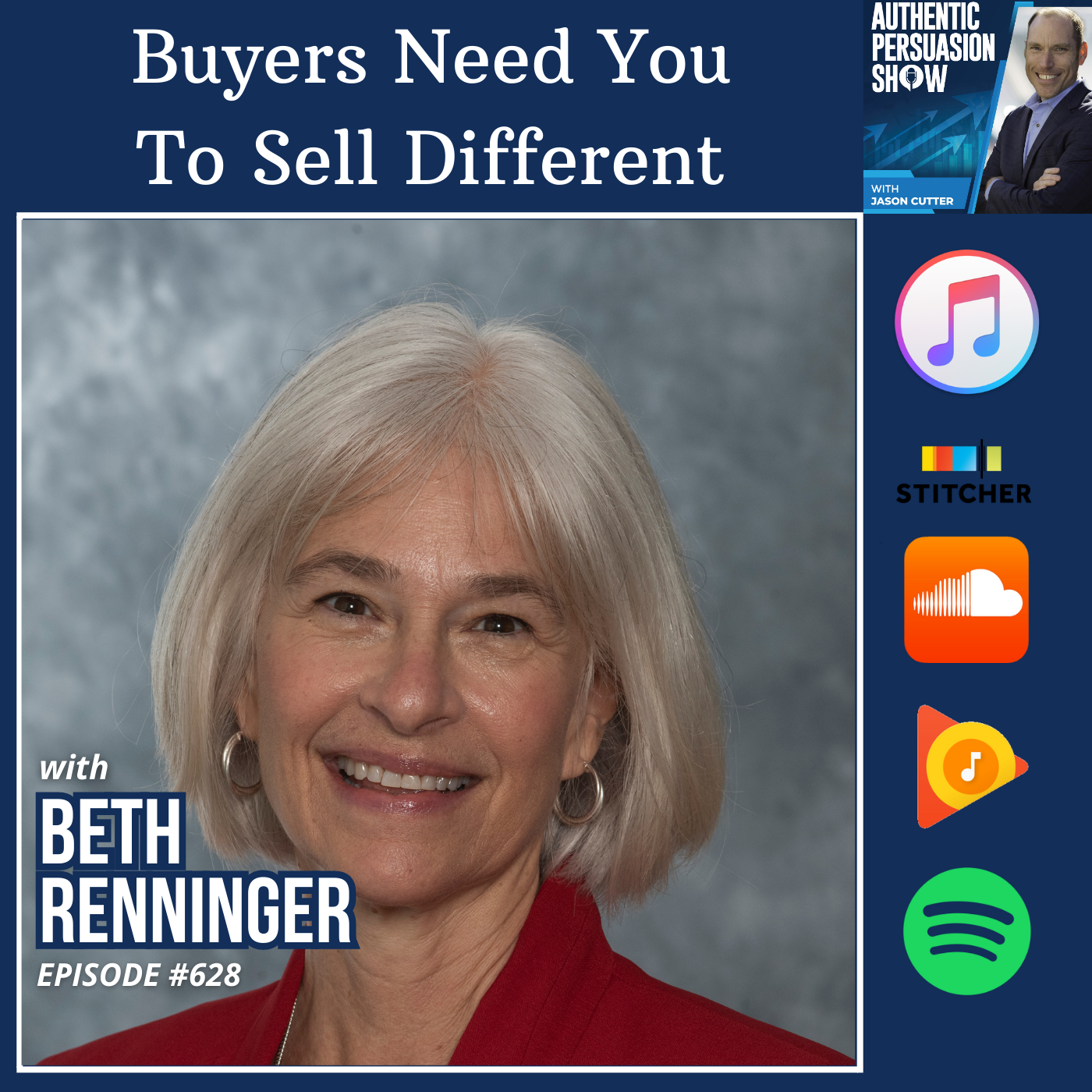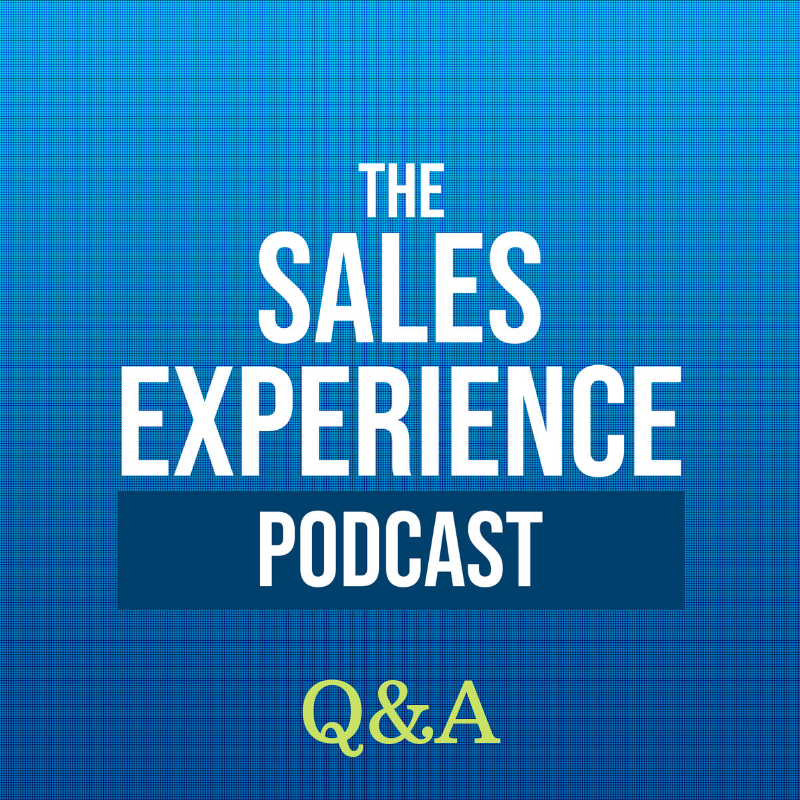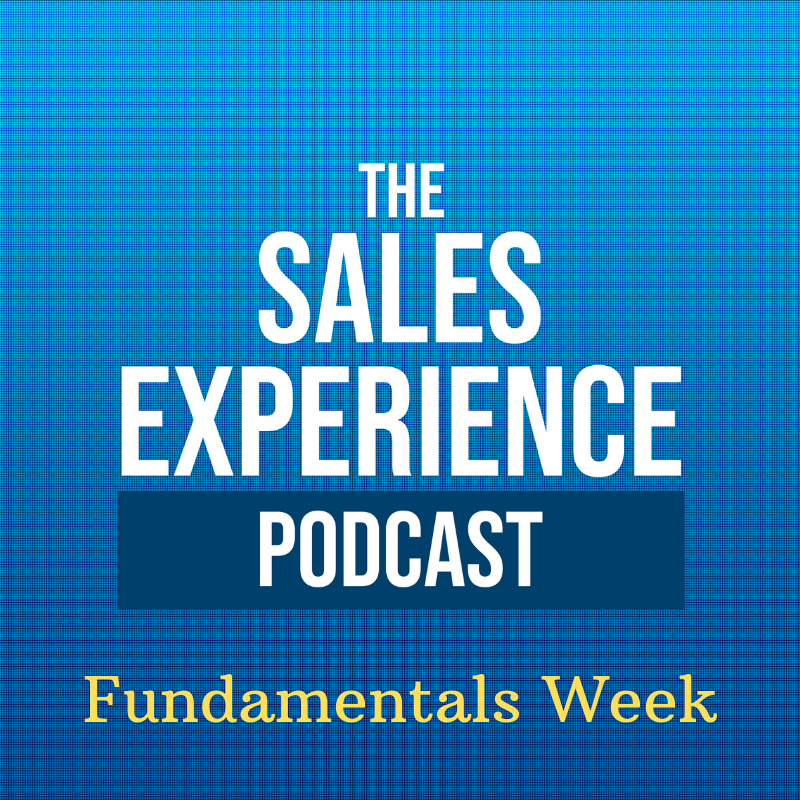Episode Transcript
Jason: Hey, welcome back to the sales experience podcast where thought leaders and professional speakers weigh in on important sales related topics. I'm so excited to have Dan Englander on the show this time around as my special guest from the marketing agency world. So Dan is the CEO and founder of sales schema, which you can find at sales schema.com.
They are a fractional new business team for marketing agencies. He also hosts the digital agency growth podcast. He has two books mastering account management and the B2B sales blueprint. And he and I at different times in our lives, but are both alumni of. Santa Cruz, which you mentioned at the end of the show, talking about the mascot, which is the banana slug, which is gross and weird, but also fits the school very well, if you're familiar with it and as he put in his bio, which I think is funny and fun in his spare time, he enjoys developing new aches and pains through Brazilian jujitsu, which I've been there myself.
I know exactly what that is. So this series, we talk about marketing. We talk about sales, the role of sales. Selling in different parts of any company and some of the challenges of that salespeople managing it, growing it, and then the agency world as well. So enjoy this series. Hey Dan, welcome to the sales experience podcast.
She isn't appreciated. So I love having, I'm gonna say marketers on the show, I think that's the category you put yourself in is marketing. And I think what's fascinating, and this is what I'm looking for in this conversation, is not just marketing, but your marketing, but. for marketers, which is I don't know.
As I say that out loud, it feels very inception like, right? Like it's like a market for marketers who are marketing. It's just like, how many layers deep does that go?
Dan: Yeah. And hopefully the, sorry, let me catch up. I hopefully just simplify it a bit. Basically what we're doing is getting meetings for ad agencies with brands.
It's lead generation in a way. And which exists in this weird sort of nether region between marketing and sales, I guess you could say.
Jason: Yeah. So one of the things when you and I had talked in the past, we had talked that you were in a client services role and you were doing client services in the past and maybe you classified under this now and that you realized that was actually a sales role in kind of what you were doing.
Talk more about that evolution and where you started and what your realizations were.
Dan: Yeah. So basically I started, I moved to New York after college. I like waited tables and got a couple of kind of BST internships and landed a job at this ad agency through somebody, a personal network, basically personal connection and worked as an accounts grunt for a number of years or for probably a year and a half.
And I was basically just like pitching things to clients and like monitoring Facebook walls for big consumer electronics brands where somebody would be like, my headphones broke. Who do I? And then it would be the agency that would handle that. So it did that for a little while, got one foot into the agency world, got a taste of it and then moved into a, basically a sales role that identifies being a sales role.
Cause it was a split account management, client service, sales position. And I think what I realized thereafter is that. That's a common role, whether you're an entrepreneur or you're in a small company or whatever it is, there's a lot of roles where you are dealing with fulfillment, you're dealing with clients, you've also got to go out and hunt new business at the same time.
And I think there's just a lot of challenges with that. So basically one catch up to your question, when I landed in that role, I didn't take pride over being in sales. I didn't self identify as a salesperson. And it was essentially at least half the role, if not more. That's the classic agency model, like these ad agencies, even if you watch Mad Men, they are a lot of the times living with this previous model and the re whereby you have an accounts person that's schmoozing and trying to get continuing business or new business with a particular account.
And what I think, what I've observed is that perhaps in the agency world, perhaps beyond that. There's things have changed, right? A company isn't hiring an agency or consultancy for like years at a time, usually, or decades, like they used to, they're trying out a lot of different vendors, a lot of different things.
They're constantly testing, they're weighing their optionality. And that's why I think really helps to have, you really want that division of duties, B2B enterprise phase. But I'm getting ahead of myself. Basically I landed in the sales role and. Got a bunch of training, got a lot of experience and eventually learned how to balance a split sales client service role.
And that's what informed the first book I wrote called Mastering Account Management and lots of other stuff from there.
Jason: And anybody, if you're watching the video, you can see that I just was smiling even bigger and bigger as you're talking about that because Anybody who knows me or listens to the show, I talk about everything in life being sales and where the sales fits into so many different roles and responsibilities.
I also love the fact that you weren't planning on going into sales. You didn't identify yourself with sales. And then you end up in this role that turns out to be more and more sales as you go along. And it sounded like some specific sales. I think there's something to account management where a good account manager under in a company is focused on retention, which is sales up sale and providing additional value, which is sales keeping somebody engaged and using the product or service, which is always sales and reselling, it might not realize it.
So I love. the comments that you said. Now, did you have an intentional sales like task? Did you have a quota numbers plus the account management side?
Dan: I did eventually and I guess relatively early on. Yeah. So this first role where I learned most of what I know was essentially selling animation video services to the fortune 500 market and also selling those into the bigger agencies.
We were based in midtown Manhattan, in the advertising world. So I think what Makes that more challenging and what I learned a lot about to segue into the business that I've had for the last since 2014 or so is that selling, complex marketing services. It's often intangible.
The value that's being provided. It's a long sales cycle. It's complex. Especially when we're talking about creative services, you're selling art to a degree. So I think it takes a different process than what I've learned by and large from a lot of the enterprise sales training and that sort of things.
I think regardless of what domain you're in, regardless of that, you always have to trim away and find the best kind of take things and leave other things to make it all work, which is what I had to do. And most people have to do when they find themselves in the sales role. And I think that's why most sales roles are.
Very entrepreneurial, even if you're just an employee in a big organization, there's so much more entrepreneurial thinking that goes into every sales role that I've experienced with others.
Jason: One thing I've seen is that salespeople worry about only being able to win if they use manipulation, tricks, tactics, and hard closes.
So they end up struggling to close deals. Make their quota or earn the kind of money that they want to make. If this sounds like your current situation, or maybe you want to make more money in sales without feeling like you're selling, then my upcoming book called selling with authentic persuasion will help in it.
I'm going to take you on a journey to transform from order taker to quota breaker. If you're ready to become an authentic persuader, crush your goals and create success in your sales career, then go to Jason cutter. com again. That's Jason cutter. Dot com and preorder the book today. I think part of that entrepreneurial mindset, which.
Every employee should have that, but most people don't necessarily, but at some level, it's the ownership over that role and the outcome and the accountability, right? Even if it's a non sales role, like the more ownership somebody has of that. position, that department, that outcome, they're part of the business machine, if you will, the more successful they'll be.
And I completely agree. The more entrepreneurial type of mindset, which you could look at many different ways and use other words to describe it, like being open, being creative, being persistent, just. Wanting to grow that type of salesperson is amazing and always effective. And I know a lot of companies fear hiring that kind of person because they're worried they might go on and do something else, which they will.
And you should just appreciate it and support it and have that kind of culture that you have a team of. Essentially, you don't want to be future potential entrepreneurs selling.
Dan: Yeah, exactly. And now I'm more on the hiring side and running a consultancy where we're doing done for you campaigns for ad agencies and all that good stuff.
And I've learned a lot from that. And I've also just talked to lots of other business owners or hiring salespeople. And there really is. No free lunch, get what you pay for dynamic with salespeople. And it's I can't tell you how many times I've talked to somebody and they're like, yeah, we've got this commission only person.
And I'm like, okay, one of two things is going to happen. Either they're really good. They realize their value and they leave right after you've invested in training them and getting ramped up. Cause they finally realized that they have a bad deal or you have somebody that's just not very good and never realizes it.
So you have one of two bad options by underpaying and under supporting a salesperson. So I think that's maybe I'm getting off track a little, but that's a, one thing that comes to mind.
Jason: No, I think that's great because part of the show, what I talk about and then what I deal with companies on is also that hiring piece, right?
So it's hiring the right person, which there is no right person across everything. It's a lot about a fit relative to the product service being sold, the sales cycle, the relationship requirements of how engaged they have to be. So what are you finding then? Is a good fit in your world? Are there some characteristics of successful sales people that you've found work well?
Dan: It's a good question. And I think that, like you said, it really depends on the domain and the situation. I think that it's easier to identify the things that don't work. And that in my world, and perhaps others has been trying to make one salesperson be too many things, right? And when you're thinking about like the full stack of sales, you're really thinking about not just one person, but the whole mission of getting business closed.
You're thinking about a few different skill sets, right? So you're thinking about creative, like somebody that can think strategically, think about markets. Think about where the value lives. That could be somebody that's a copywriter. It could also be somebody that is a salesperson, but oftentimes it's an owner that has to ask these hard questions.
So it's a creative strategic role. It's a data and systems thinking role. Like we want to get meetings and we've got to figure out what are the touch points? How does the data move from one platform to the other? What's, what are the psychological cues that are being hit in order to get somebody to say, yes, we'll have a meeting.
Yes I'll bring my partner in. Yes, I'll do this, that. third CRMs, all that stuff. So systems, and then you have the straight up hustle, who's going to have the poise to pick up the phone, the sound agreeable, or somebody that others would want to spend time with. And it's really hard to find a enough hours in the day for all those things to be filled and also be to have somebody that really has all those skills.
So I'm a big believer in division. Duties. And that's part of what we do with our companies is offering some of those duties to our clients, as opposed to them having to hire all of them. But I'm a big believer that if salespeople, like I think of the sort that you're focusing on, like their time is best spent maybe building proposals, but mostly talking to their prospects and closing deals and doing the things that they can only do.
And not so much the other stuff. So I think that it's opposed to figuring out like the perfect archetype for every situation. It's about figuring out what are the tasks that person should not be doing that others should be doing. So that's how I've identified it.
Jason: All right. That's it for part one.
Make sure to find Dan online at sales schema. com, as well as on LinkedIn where he's pretty active. And I will see you in the next episode. That's it for another episode of the sales experience podcast. Thank you so much for listening. If you find yourself on iTunes, can you leave the show a rating and a review?
It helps other sales people and sales leaders find the show and please subscribe to the show and share episodes you find valuable with anyone you know in sales. Help me on my mission of changing the way sales is done. And if you're ready to work together, go to Jason cutter. com. Again, that's Jason cutter.com.
To find out how I can help you or your company create scalable sales success. I will see you on the next sales experience podcast episode, and keep in mind that everything in life is sales and people remember the experience you gave them.
![[E276] Helping Agencies Sell More, with Dan Englander (Part 1)](https://episodes.castos.com/salesexperiencepodcast/images/Dan-Englander.png)


